Chile has launched a 10 year water agenda
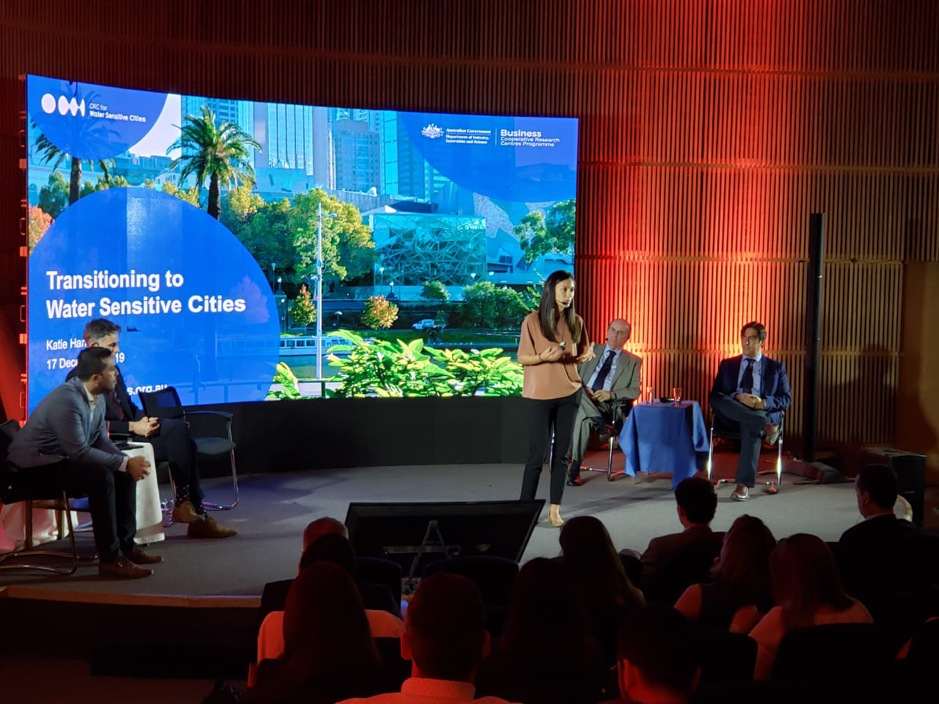
The CRC for Water Sensitive Cities was invited by the Superindendencia de Servicios Sanitarios (SISS)—the national water regulator of Chile—to speak at the launch of the country’s new 10 year water agenda, Agenda del Sector Sanitario 2030.
The agenda outlines future water challenges in Chile, including climate change and urbanisation. It explains how the Chilean water sector will need to adopt a more integrated approach to water management to address these challenges. It also acknowledges the importance of the UN sustainable development goals (SDGs), and how the water sector can help deliver them in Chile.
Developed from a two year collaborative process with stakeholders, the agenda outlines 12 priority projects for the water and sanitation sectors. These projects span different elements of a water sensitive city (WSC), and include technical, social and design projects.
CRCWSC Senior Research Officer Katie Hammer travelled to Santiago in Chile to speak at the agenda’s launch event on 17 December 2019.
The launch began with presentations by two national ministers—Alfredo Moreno, Minister of Public Works, and Christián Monckeberg, Minister of Housing and Urban Development—and the SISS Superintendent, Jorge Rivas. In the afternoon, a SISS speaker (Gabriel Zamorano) outlined the agenda, and three international speakers highlighted experiences from their organisations and countries, to support and endorse the agenda:
- Katie Hammer, CRCWSC, Australia
- Geert Jan van Heck, World Waternet, The Netherlands
- José Luis Inglese, International Water Association, Argentina.
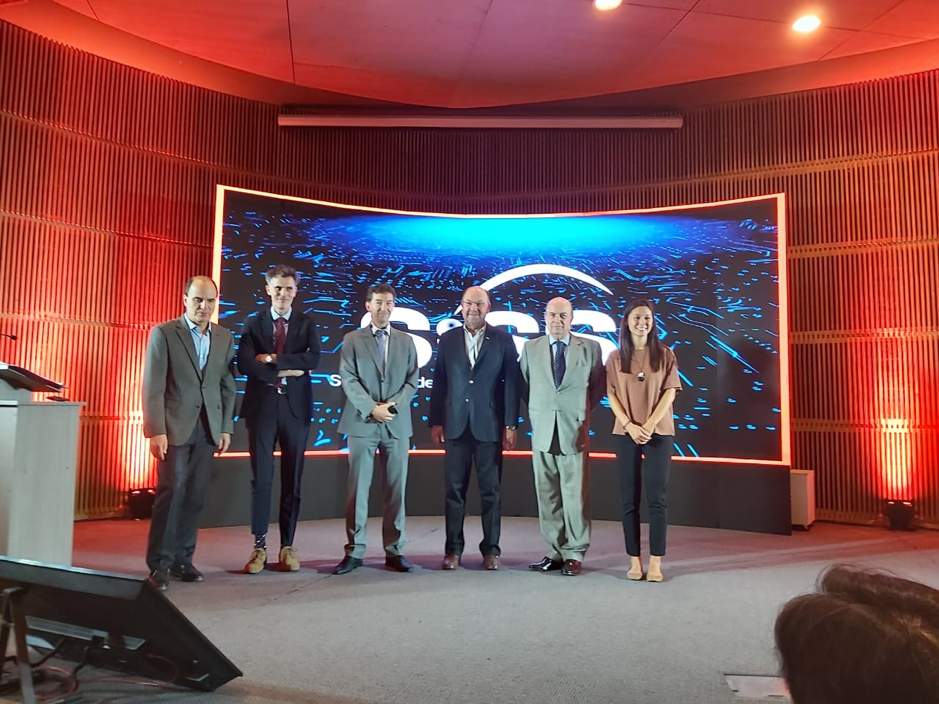
Katie’s presentation (translated live in Spanish for her audience) outlined what makes a WSC, and why WSC principles are important in the context of current water management challenges. She discussed what a successful WSC transition needs—namely, shared vision and commitment; innovation across technical, social, and design solutions; and collaboration across organisations and sectors. She highlighted how a number of CRCWSC tools and processes can help achieve these goals.
Katie also related case studies of how Australia has successfully tackled some of the challenges in Chile (such as drought, bushfires, flooding, urbanisation), along with several international examples of water sensitive solutions.
To conclude the launch event, the SISS endorsed the IWA Waterwise Principles, which the IWA representative (José Luis Inglese) and SISS Superintendent Jorge Rivas signed.
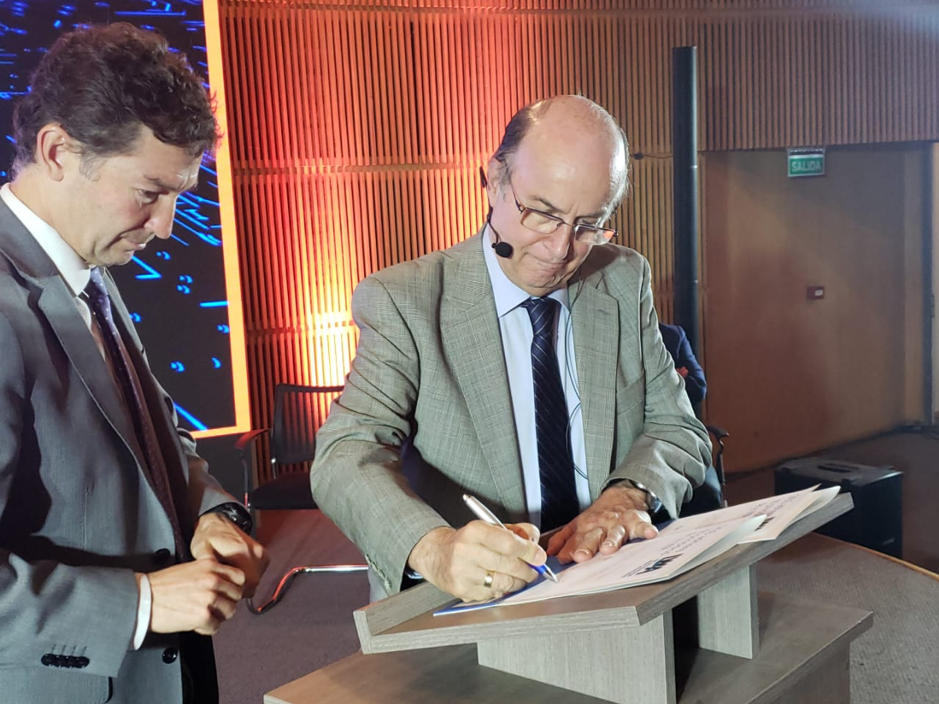
The CRCWSC was invited by Victor Galvez to speak at the launch. Victor works for SISS and helped develop the 2030 water agenda. Having recently completed the International Water Centre Masters of Integrated Water Management (IWM) in Brisbane, he was keen for the agenda to incorporate IWM and water sensitive city principles.
Chile is both similar to Australia, and very different
Chile faces a lot of similar challenges to the ones that we face in Australia. At the time of Katie’s visit, the country was experiencing a 10 year record breaking drought, and bushfires in the water catchments. It also has history of extreme flooding, and a large focus on mining.
Unlike Australia, however, its water is privatised. With over 40 public organisations responsible for water in Chile (plus over 100 private stakeholders in some catchments), there is also a huge equity gap in access to water in rural areas, and an increasing discussion about water rights. Protests occurred last October in response to the rising inequality and cost of living in Chile.
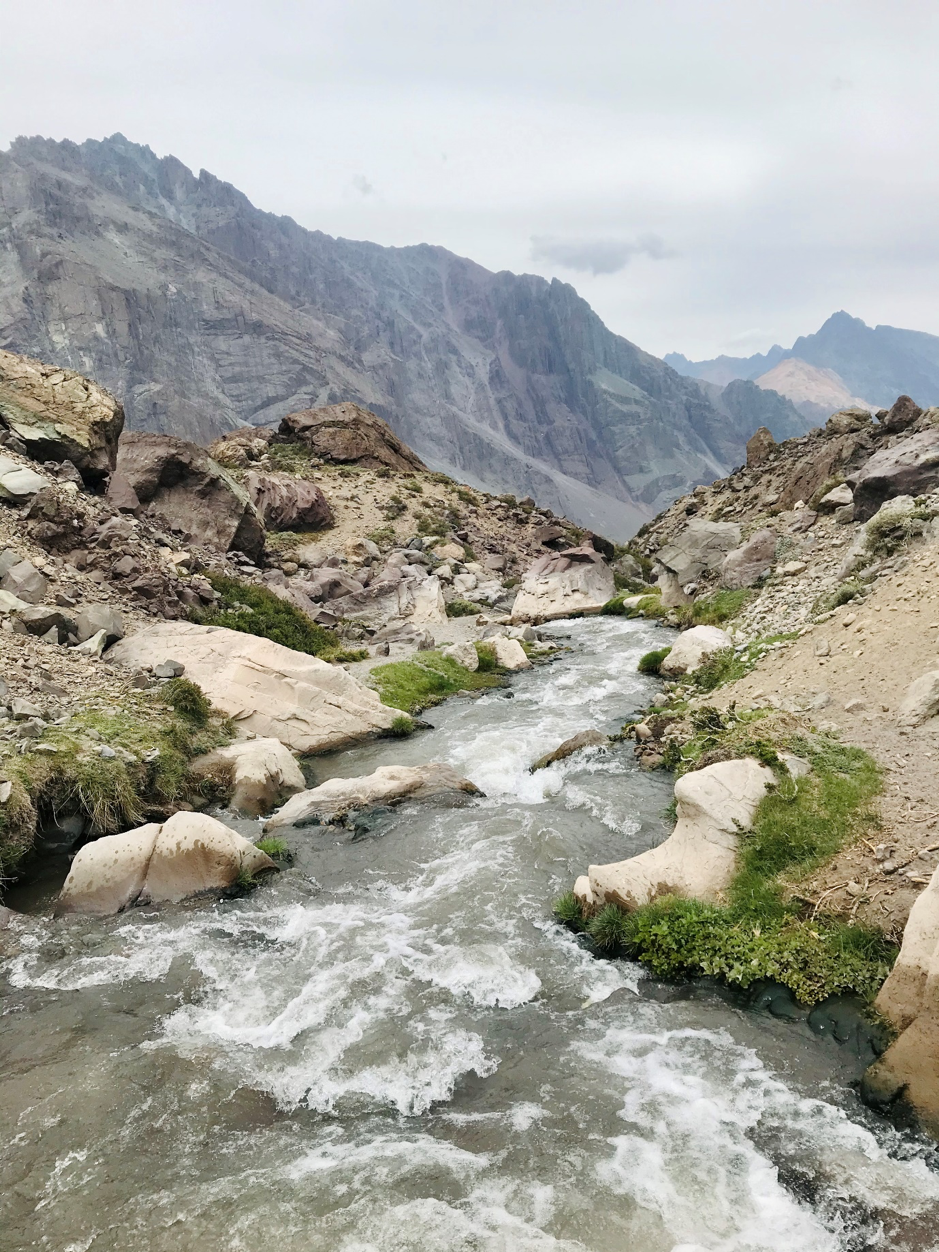
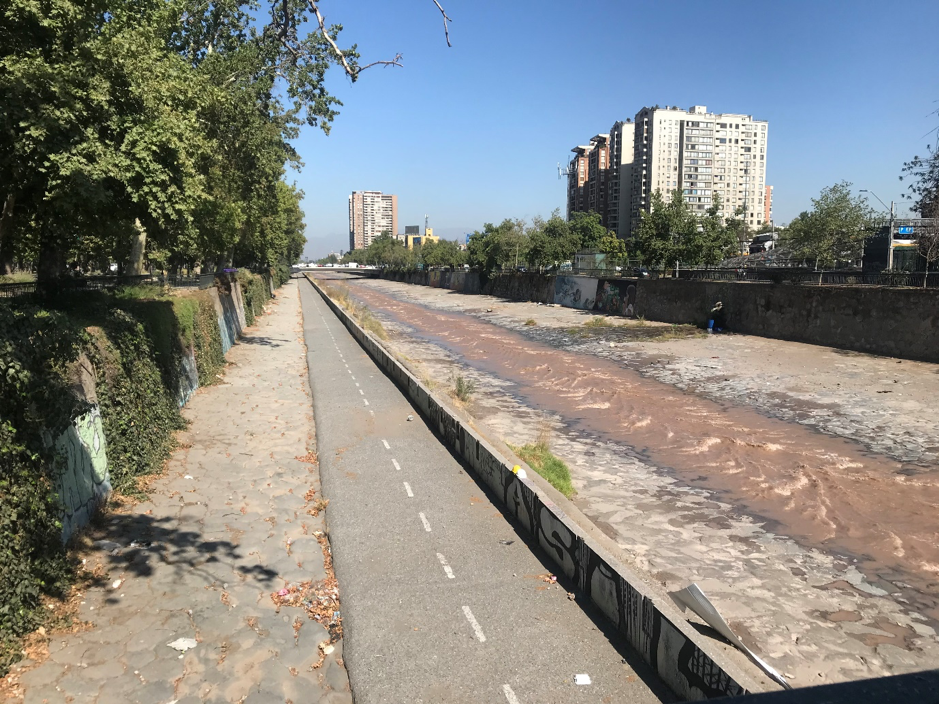
Hear about Katie’s experience
‘Visiting South America for the first time, I found it so interesting to learn about the water context in Chile, and the similarities to and differences from Australia. The emphasis on water in the broader social equity conversation happening across Chile really demonstrated the importance of improving water management practices.
Travelling on my own, and representing both the CRCWSC and Australia, I was glad to have some school learned Spanish (if limited!) to help me communicate with people and get around the city. Fortunately, I also had great on-ground support from both SISS and the Australian embassy, who helped promote my trip.’
For more information, please contact Katie Hammer (katie.hammer@monash.edu).